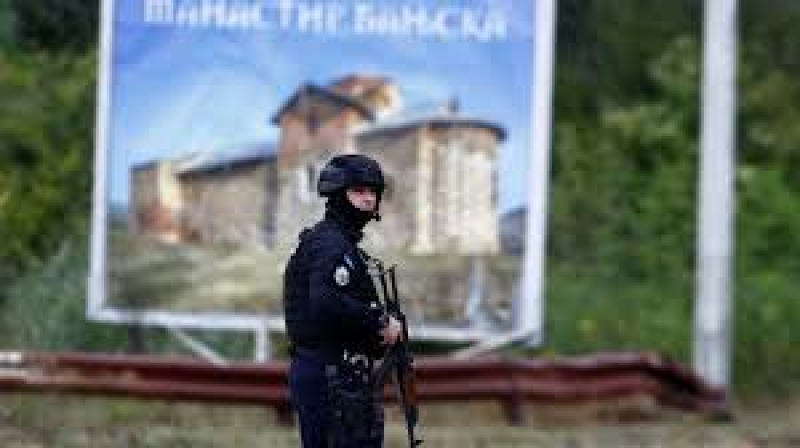- Intimidation or bloodshed cannot halt Bangladesh’s march to democracy |
- Khaleda Zia integral to an important chapter in BD history: Yunus |
- Enthusiasm marks Victory Day celebrations across Bangladesh |
- Dhaka-Delhi ties deep; to be shaped by trust, dignity, mutual respect |
- EU deploys election observation mission to Bangladesh |
Kosovo police on the hunt for gunmen after deadly shooting

Kosovo police forces entered the northern village of Banjska on Monday, searching for members of the armed group that opened fire on a police patrol on Sunday.
A group of around 30 individuals killed one officer and barricaded themselves in a local Orthodox monastery on Sunday. In the stand-off that lasted several hours, police forces killed three of the gunmen and injured another two.
Several assailants escaped on foot and remain on the loose.
Local forces secure and search the area
Local police forces arrested two of the attackers, as well as four ethnic Serbs who are suspected of supporting them. All six are being investigated for terrorist acts.
Authorities also searched for infiltrators among worshippers in the monastery.
Two clergymen and a group of pilgrims from Serbia were reportedly staying in the building when the fighting broke out on Sunday. None of them have been injured.
Gunmen believed to be ethnic Serbs
It is not yet clear who the attackers are and who is supporting them, but they are widely believed to be ethnic Serbs from northern Kosovo.
Tensions between predominantly Orthodox Serbs and mostly muslim Albanians in Kosovo have been flaring up over recent months.
According to the Ministry of Interior, police seized arms and explosives that could be used to arm hundreds of people.
Kosovo's Prime Minister Albin Kurti condemned the incident as a "terrorist attack" and accused Serbia of supporting the "mercenary structure."
Serbia denies involvement
Serbian President Aleksandr Vucic denied any connection to his government, pointing the finger at local Kosovo Serbs instead "who no longer want to stand Kurti's terror."
Belgrade has repeatedly accused Kosovo of oppressing Serb communities in the country's north and has demanded more autonomy for them.
While Vucic condemned the attack, he also slammed the West for its "hypocrisy" over Kosovo. "You can kill us all. Serbia will never recognize the independence of Kosovo, that monster creation that you made by bombing Serbia," Vucic said.
During the Kosovo war in 1999, NATO forces bombed Serbia in a decision that remains controversial. Kosovo declared independence from Serbia in 2008.
Most EU countries recognize Kosovo, but the bloc's efforts to broker peace between the two sides have failed so far.
Russia said on Monday it is monitoring the "potentially dangerous" situation in Kosovo. Moscow does not recognize Kosovo's independence and has traditionally supported Serbia in the conflict, reports DW.

